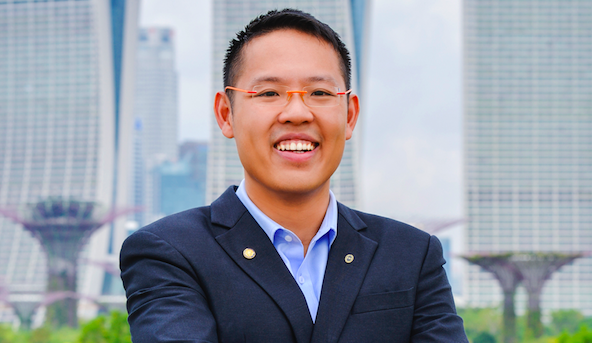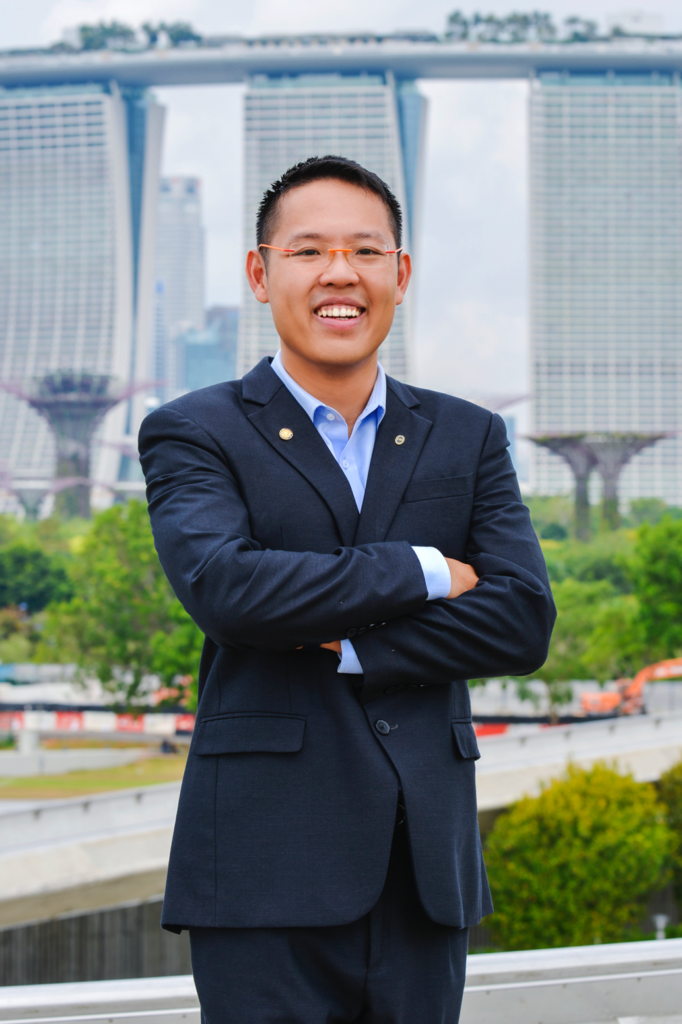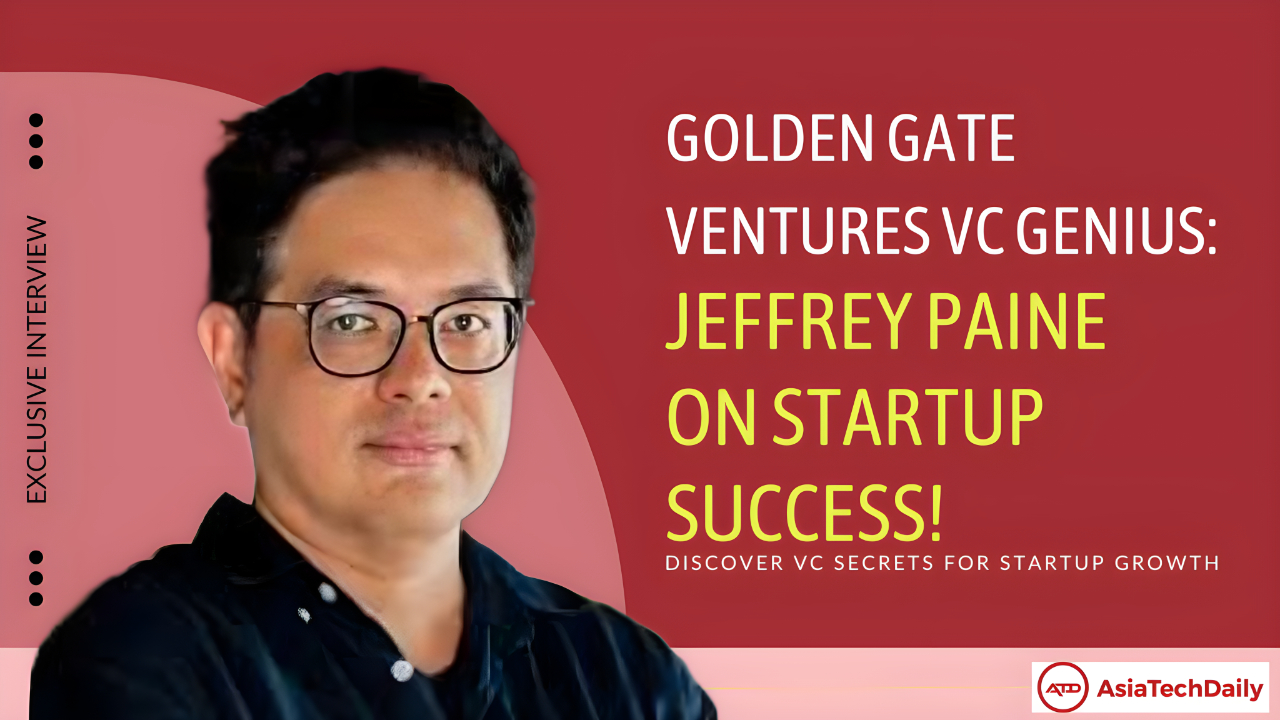AsiaTechDaily – Asia's Leading Tech and Startup Media Platform

Yinglan Tan, Insignia Ventures Partners – Backing Early-Stage Tech Startups
Yinglan Tan is a noted venture capitalist backing sustainable early-stage tech startups in South East Asia. Mr. Tan has made a niche for himself with his experience and in-depth knowledge in the venture capital industry. He believes that being a venture capitalist allows him to explore new opportunities and work towards creating something new.
Yinglan Tan is the Founding Managing Partner and CEO at Insignia Ventures Partners. The company manages more than USD150 million from foundations, university endowments, sovereign wealth funds, and renowned family offices. The portfolio companies comprise of many technology market leaders.
Prior to Insignia Ventures, Mr. Tan worked as a venture partner with Sequoia Capital. He was the first hire and venture partner in South East Asia. In his stint with Sequoia Capital, Mr. Tan sourced numerous investment opportunities for the company including Go-Jek, Tokopedia, Appier, Carousell, Pinkoi, Dailyhotel, and 99.co. Mr. Tan has also served as a member of Singapore Administrative service where he has served in a number of positions in the Prime Minister’s Office. He has also worked with 3i Venturelab China as a founding Director. The company is a joint venture between INSEAD and private equity firm 3i.
Yinglan Tan has been honored as a Young Global Leader in 2012 by the World Economic Forum. He has also been named as an Eisenhower Fellow in the year 2018. Besides that, he has also been on WEF Technology Pioneer Selection Committee Panel and was ranked by Prestige magazine among “Top 40 leaders under 40” in the year 2015.
Besides being an acclaimed Singaporean businessman he has authored two books-“Chinnovation- How Chinese Innovators are changing the World” and “The Way of the VC- Top Venture Capitalists On Your Board.” He is an Honorary Adjunct Associate Professor at NUS- National University of Singapore.
Read on to know more about Yinglan Tan’s philosophies and ideologies on Venture Capital here.

What background and domain expertise do you have? What makes you turn into an investor?
Yinglan Tan: In sports like soccer, you have different roles – referee, coach, players. My journey was a little unusual. I was first a referee as head of projects at the National Research Foundation (NRF), setting rules and regulations to spruce up the entrepreneurial ecosystem. This role came early in the development of the Singapore startup ecosystem where funding and support for early-stage tech startups were lacking.
I then transited to Sequoia Capital where I am grateful for the opportunity to be a coach, mentoring and supporting companies like including Indonesia’s Tokopedia and Go-Jek, Singapore’s Carousell and Taiwan’s Appier.
Armed with coaching experience, I decided to become a player and started Insignia, venturing into the field and working with companies like Carro, Payfazz, Janio, Logivan and many other technology market leaders in Southeast Asia. As a player on the field, we are closer to the thick of the action and able to empathize with founders much better.
As an investor, what kind of startups have you invested in? and how did you find those startups to invest in?
Yinglan Tan: Insignia invests in unstoppable founders who build “great” companies.
A good company wins the game, but a great one defines new categories. This requires a deep understanding of the market and a commitment to solving the problems within. We look for this unstoppable spirit in our founders. Vision can only go so far; grit and performance go the distance.
Within the FinTech vertical, we saw how mobile wallets like Ovo and Go-Pay focused on partnering platforms, like Grab and retail giant Aeon, with large customer bases. At the same time, other startups leveraged agent networks to drive eCommerce transactions.
However, Payfazz focused on the untapped, nonobvious markets. Instead of competing to acquire users in big cities, they focused on providing financial access to the unbanked population by building a countrywide network of offline agents.
This is the kind of game-changing approach that we look for in companies.
What would be the core factors that you decide “Not” to invest in certain companies?
Yinglan Tan: Founders should know their 3Ds coming to the table.
Drive: Why did they start the company?
Differentiation: What is their unfair advantage and differentiation?
Dynamics: What is their go-to-market strategy considering regulations, competition, and market conditions?
On our end, we also have our own read on the market. We want to make sure we are aligned on the 3Ds (drive, differentiation, dynamics).
What would be the KPI that you usually check about the startups’ growth? It may be diverse in each industry like LTV, CAC, MoM, etc. but would be helpful to understand more about your additional investment factors.
Yinglan Tan: We focus on the one key factor that is not necessarily quantitative but is instrumental to their growth. It could be the management team’s background that allows the company to navigate the local property landscape, as in the case of CoHive. For Propzy, it is a network of transaction centers that increases trust and drives transactions on their platform.
What is the investment range and in a typical year, how many startups do you invest in? Do S.Korea headquartered startups have a chance to get investment from you or should be headquartered in certain countries?
Yinglan Tan: South Korea’s edge lies in its engineering talent, especially in hardware and IoT. This is rooted in the country’s focus on STEM education and the highest R&D spending in the world (4% of GDP). In Southeast Asia where access to engineering talent is limited, South Korea can build better products faster. The country’s brand value and reputation can also be leveraged.
It doesn’t matter where the company is headquartered, but two truths apply. First, core functions responsible for the startup’s advantage should remain in Korea. Second, strong local teams lead the charge in other markets.
What are the main factors that startups fail as per your experience after getting investment and how can they prevent mistakes in advance from your personal perspective?
Yinglan Tan: The top 3 factors that lead to startups failing are (i) the startup falls apart internally due to founder issues, (ii) the startup fails to find product-market fit, and (iii) the startup runs out of funding. In reality, every situation varies and startups fail due to a myriad of factors.
Behind every great soccer player is an experienced coach, who has worked with different types of players. In the same way, a startup needs experienced supporters who can spot the early warning signs. You need a supporter with the right internal structure and street cred to ensure that they deliver on their brand promise.
What’s your advice to entrepreneurs who have a chance to meet investors like you? What are the top 3 questions that you always ask the founders?
Yinglan Tan: We go back to the 3Ds: drive, differentiation, and dynamics. These are the top three things we always ask founders get to the bottom of what we believe makes a company “great.” Take Indonesian SME FinTech startup Awantunai, for example.
Drive: Rama and his team saw the need for more affordable access to financing in Indonesia given the high-interest rates charged by the already limited options of SMEs for loans.
Differentiation: Awantunai brings together the tech and engineering prowess of Rama to make offline loan cycles scale, Dino’s experiences in banking, FinTech, and multi finance, and Windy’s on-the-ground execution from her Go-Jek days.
Dynamics: Awantunai works with the underserved MSME segment. They work with the supply chain of these MSMEs, where the data exists to address issues of risk and collection in financing.
What’s your general thought about the term “global” and what are the important factors (criteria) for Korean startups to consider for international expansion?
Yinglan Tan: Global does not refer to a company’s size or scale but positioning in a value chain that spans regions and markets.
Startups need to have a triple-A tactical plan when going into the global battlefield:
- Advantage: what unique edge is the startup bringing into the fray?
- Adoption: what is the best way for this advantage to be wielded?
- Adaptability: how will the startup navigate through the unfamiliar wilderness?
While deep tech is an obvious advantage, Korean startups should think twice about whether or not the region is well-suited for the adoption of these technologies. The best advantage for a startup is one that works given the market conditions, like Igloohome’s bank-grade security smart locks which can operate even without an internet connection, an important feature considering Southeast Asia’s poor internet connectivity.
Adaptability here is less about making things more flexible but setting in structures that cater to local nuances. Having local executives and teams is the first step.
As you know, our company name is “beSUCCESS”, what’s your definition of the term “success” as an investor or as an individual human being?
Yinglan Tan: Success as an investor means building great companies that are influential and make a major impact in the tech ecosystem. Companies where the metric of success is lives impacted.
Real wealth created = (people served x the value-added x the frequency) – cost
These are all very measurable components. We set ambitious goals and constantly assess where we are to keep ourselves accountable to our mission.
As a human being, at the end of the day, success is the people you care about caring for you back. What comes around goes around, and success is no exception.
What are the one or two things that you would do differently if you could go back to 10 years ago?
Yinglan Tan: Many founders have often transplanted business models from China and Silicon Valley, but we’ve learned that founders need to heed the rule of startup natural selection: the fittest adapt.
Direct copies (clones) will not last when they are thrust into a new environment that they are not built for. At the same time, new species are exposed to business model risk. It’s the startups that learn from innovations in more advanced ecosystems, adapt and localize (mutants) that ultimately win.
De-risk the business model by adapting to local nuances — that’s what founders should have done more in the past.
When you have a chance to come to Korea next time, what kind of Korean entrepreneurs and startups you want to meet?
Yinglan Tan: We want to hear entrepreneurs pitch to us why their edge presents them with an opening overseas.
Market expansion is like poker. Success is not determined by the strongest cards to play but by the strongest plays for their cards. It comes down to entry strategy – what is the opening that is left untouched by incumbents and how can they build an unassailable foothold quickly. If they are lacking a piece, is that something which can be overcome easily?
Lastly, they need strong local on-the-ground teams that can execute the strongest plays on their cards.
You can follow Yinglan Tan here.
Are you looking to secure investment for your startup or a keen startup enthusiast, keep an eye on our interview section.
Follow Asia Tech Daily to know about the innovative startups and how they are revolutionizing the ecosystem.





